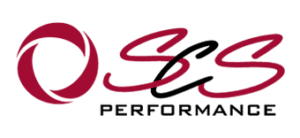Maximizing Business Time Management for Efficiency
How many times have heard the immortal catch cry, “I don’t have enough time” and then….the more scary question – how many times have you been the one to utter it?
The lack of time is really the combination of our perception and tolerance. Perception, because busy is how we see our collection of activities – for some, 8 hours of engagements is very busy, yet for others they are wondering what you going to do with the other 2/3rds of the day. For those who immediately thought of “work” when I said “8 hours of engagements” – that is simply proving my point – as you perceived this to be work where as it could have been fun or family time.
Equally it’s our tolerance, tolerance of where our time is drawn to; by computers, processes, families, people and the many other forces. Frequently I find in businesses, significant time being soaked up because something is being tolerated rather than simply dealt with.
So I offer the following practical tips which will save you time.
Urgent V Important
This means something different for everyone, but it is one of the simplest yet powerful differentiators’ that I have come across. Known as the Eisenhower matrix, this guides the user to consider where an issue is urgent and/or important using a simple 2×2 matrix. The basic point being that if it’s urgent and important then it’s critical – so attend immediately, whereas if it’s neither urgent nor important, then you need to question why you are doing it at all. Many people spend a lot of time doing urgent things which are not important.
Planning
Planning the month, the week, the day…. all makes for a more effective use of your time. But….be aware that regardless of the quality of the plan, the unknown will still strike and the end of day actual will still look different to the start of day plan – BUT you will still have achieved more. The benefit of planning is that you get the ability to review what’s Urgent V Important, so you have still been able to prioritise the known tasks.
Travel Waste
There is generally great time savings to be captured by examining your travel patterns and using better forward planning. For those who have teams on the road, it is of course not just time that you save, as when you convert wasted travel time into billable hours, you maximise your profitability. Consider using technology to replace some travel – Skype and conference calls can offer great time savings.
Agenda and Focus
Required for every meeting. The value is that not only will the meeting will be sharper and shorter, but going into the meeting – you have a clear target to achieve. This fosters better meeting planning (allowing for the forward provision of background or technical information so that everyone has a base level of information to work from) and you are more likely to actually “achieve” something.
The 80% rule
In business as in life, often something completed to 80% (in lieu of 100%) is good enough. Naturally judgement is required here as some items need to be “perfect”, but equally there will be a lot that don’t. The extra time and effort required to get something to perfection is often not reflected in increased value. This point is perfectly illustrated in an Ambulance Services advertisement which said; “Any CPR is better than No CPR”.
Emails/Mobile Phone
A blessing or a curse for business, but regardless – you need to show restraint and discipline. Restraint on how you monitor your email and phone accounts, and discipline on when you return calls and messages. The cost to your productivity can be enormous if you take an “on demand” approach to taking calls and emails as it continually fragments your attention to the task at hand.
Time Locks
These can be a great tool for the processing of emails and phone messages. Allocate a segment of time – with no interruptions – and deal with the email and return calls. Where possible, use transit time to respond to calls (car) or emails (train) providing you have the appropriate equipment and it’s safe to do so.
Delegation
Many business owners try to do everything themselves – which rarely works. Delegate appropriate tasks to others in your business, but ensure that you have bestowed appropriate accountability and have the controls in place to monitor that the work gets done. Done well – this can literally give a business owner their life back. We have a great little tool that we have developed over the years called the Time Growth Navigator which highlights how much time you can personally save. It’s been a game changer for many of our clients.
Time for a Task
An important concept for owners and staff. By understanding how long a task takes, you can build out a day of tasks – knowing that this will effectively use your time. The opposite of this is allowing your day to be consumed by a task. A handy test that I use is to ask someone what they will be doing today – they tell me a task. Later, I then ask them how long the same task will take to complete – they give me an hour/minutes response. As you may have guessed, the two never match up, with the time difference being pure opportunity!
As I started this article, perception and tolerance are time bandits – as they will draw hours from your day if allowed.
Take control of how you choose to see things – positive or negative, and then use this to your advantage. Consider carefully what you are prepared to tolerate and then manage to this threshold. By doing this you have taken control of your time, deciding what is important and where you want to apply your time.
Time is a valuable commodity and not something that you can buy back, thus it’s important that you use every moment carefully and leverage it as much as possible. By using these simple tips, you can reclaim “hidden” time in your normal business day!












